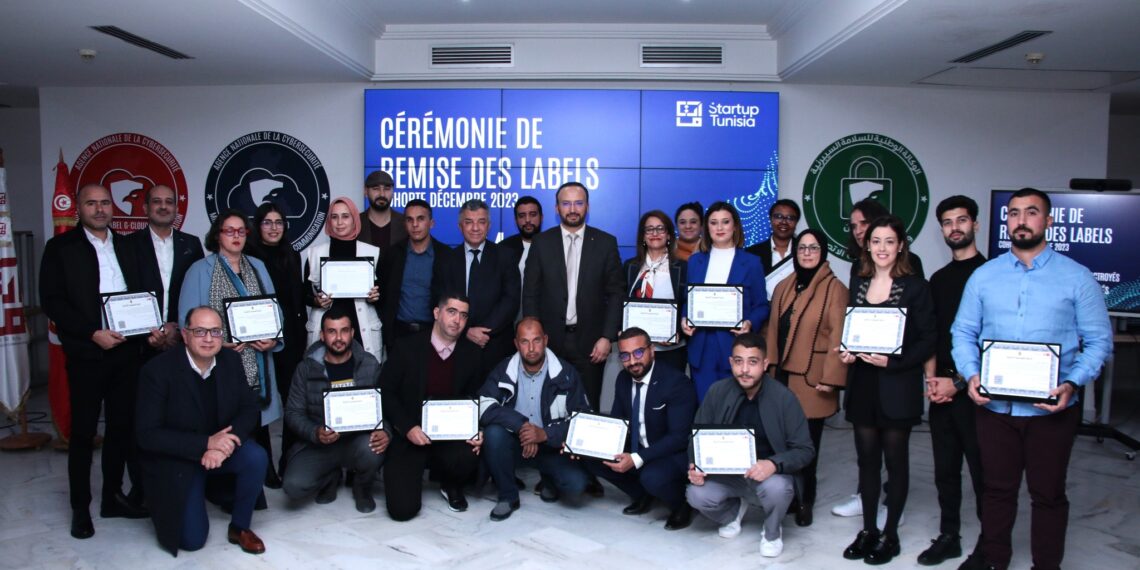Tunisia Awards 14 New Startup Labels in December 2023, Total Reaches 988
In a ceremony held yesterday, Tunisia’s Ministry of Communication Technologies celebrated the issuance of 14 new labels to startups, marking a significant stride in the country’s commitment to fostering innovation and entrepreneurship. The event, overseen by the Minister of Communication Technologies, Nizar Ben Neji, also highlighted the accomplishments of two notable entrepreneurs, Rym Ben Dhief Akremi and Rym Bedoui Ayari.
According to an official statement released during the ceremony, these 14 labels were part of the December 2023 session, bringing the total number of labels granted in 2023 to 34. The same source revealed that an additional 20 labels had been awarded in the preceding months of October and November. The overall tally for labels awarded to Tunisian startups now stands at an impressive 988.
Among the distinguished recipients is Rym Ben Dhief Akremi, the former CEO of Topnet, who, after accumulating 27 years of professional experience, has ventured into entrepreneurship with the RSE Time project, securing the coveted startup Act label. Another notable awardee is Rym Bedoui Ayari, the CEO of WeFranchiz.
This recent achievement builds upon the foundation laid by Tunisia’s startup support project, initiated in 2018 with the implementation of the startup law. The legal framework, established through government decree no. 840 of 2018 on October 11, outlined the conditions, procedures, and deadlines for the awarding and withdrawal of startup labels. It also delineated the benefits associated with the startup designation and established the organization, prerogatives, and operational methods of the startup label award commission.
The Ministry of Communication Technologies had previously reported in 2022 that the cumulative number of labels granted reached 773 since the inception of the support project for startups and innovative SMEs. The startup law, enacted in April 2018, has played a pivotal role in providing a conducive legal environment for the management of innovative projects, enabling numerous young entrepreneurs to bring their innovative ideas to fruition.
With this latest round of label allocations, Tunisia continues to showcase its dedication to nurturing a thriving startup ecosystem, providing crucial support to those driving innovation and economic growth in the country. The success stories of Rym Ben Dhief Akremi and Rym Bedoui Ayari stand as testimony to the tangible impact of these initiatives on the entrepreneurial landscape of Tunisia.
label startups Tunisia label startups Tunisia

Charles Rapulu Udoh is a Lagos-based lawyer, who has several years of experience working in Africa’s burgeoning tech startup industry. He has closed multi-million dollar deals bordering on venture capital, private equity, intellectual property (trademark, patent or design, etc.), mergers and acquisitions, in countries such as in the Delaware, New York, UK, Singapore, British Virgin Islands, South Africa, Nigeria etc. He’s also a corporate governance and cross-border data privacy and tax expert. As an award-winning writer and researcher, he is passionate about telling the African startup story, and is one of the continent’s pioneers in this regard.








